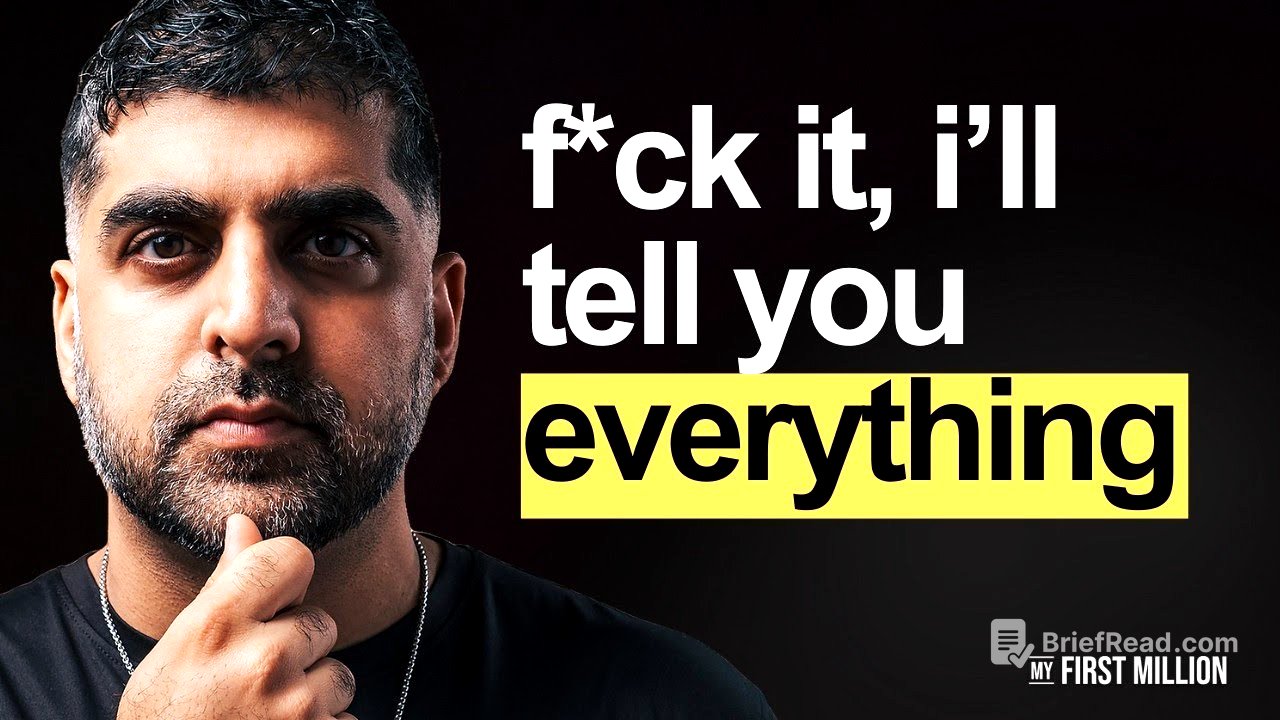TLDR;
The video outlines four key rules for building wealth, drawn from the speaker's personal experience of going from broke to a multi-millionaire. These rules emphasize the importance of mastering a money-making skill, owning equity instead of renting time, being patient with results while acting decisively, and leveraging the power of proximity by surrounding oneself with like-minded individuals. The speaker illustrates each rule with examples from successful entrepreneurs and personal anecdotes, providing a practical guide to achieving financial success.
- Master a money-making skill (selling, making, designing, or hunting).
- Own equity in a business (code, content, or capital) rather than renting out your time.
- Be patient with results but impatient with action.
- Use proximity to your advantage by surrounding yourself with like-minded people.
Intro [0:00]
The speaker introduces the four rules of money that helped him go from being broke in his 20s to making his first million by age 30 and accumulating a net worth of $30 million a few years later. He emphasizes that these rules are simple but crucial for building wealth. He aims to save viewers from years of financial struggle by sharing what he learned and what actually works.
Rule #1: Master a Money-Making Skill [1:02]
The first rule is to master one of four money-making skills: selling (persuading, marketing, closing deals), making (creating products, apps, websites, videos, books), designing (having great taste and understanding form and function), or hunting (spotting opportunities like real estate deals or investments). The speaker advises picking one that interests you and dedicating yourself to mastering it through daily practice and continuous learning. He uses Mr. Beast, Warren Buffett, Steve Jobs, and Elon Musk as examples of people who mastered these skills. He also notes that mastering two skills can lead to even greater success.
Rule #2: Don't Rent Out Your Time, Own Equity [5:01]
The second rule is to avoid trading time for money and instead focus on owning equity. The speaker warns against the trap of getting hired and receiving raises, as this is not a path to true wealth. He suggests starting a business based on code (creating websites or apps), content (producing videos, books, or courses), or capital (investing). He provides examples of individuals who turned their skills into successful businesses, such as a designer who created Shopify themes and someone who created content and sold $100 million in a single weekend.
Rule #3: Wait [8:19]
The third rule is to be patient. The speaker emphasizes that getting rich is inevitable if you have mastered a money-making skill and turned it into a business, but it takes time. He quotes Naval Ravikant, saying, "Be impatient with action and patient with results." He acknowledges that it will take trial and error and a few years to figure things out, but you only need to get rich once to let that wealth compound.
Rule #4: Proximity is Power [9:45]
The fourth rule is that proximity is power. The speaker advises moving to the center of action for your chosen field, such as San Francisco for tech or Los Angeles for movies, to increase your odds of success and accelerate your progress. He recommends living with like-minded, ambitious people to create luck, learn faster, and benefit from osmosis. He shares a personal story of moving to San Francisco and living in a house with other tech founders, which led to valuable connections and opportunities.
Recap and Conclusion [12:08]
The speaker recaps the four rules: master a money-making skill, own equity, be patient, and leverage proximity. He emphasizes that following these rules flips the odds in your favor, making it unreasonable for you to fail. He uses the example of weight loss to illustrate how making a few key decisions can dramatically increase your chances of success. He concludes with a story about Steve Martin, who decided to play the banjo for 40 years, which ultimately led to him winning multiple Grammys.









